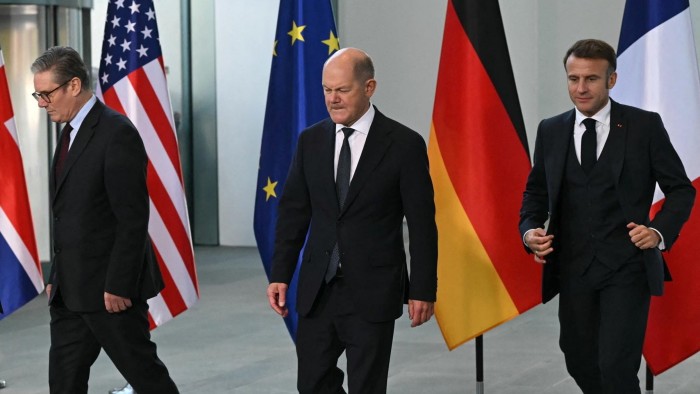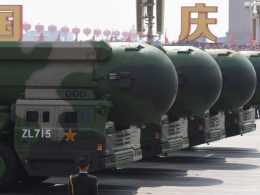Unlock the White House Watch newsletter for free
Your guide to what the 2024 US election means for Washington and the world
The writer is an FT contributing editor, chair of the Centre for Liberal Strategies, Sofia, and fellow at IWM Vienna
In 1981, the sociologists Betty Grayson and Morris Stein conducted a now famous study on how assailants picked would-be targets. They set up a video camera on a bustling New York City sidewalk and taped people walking by. The tape was later shown to inmates in an east coast prison who were incarcerated for violent offences (such as armed robbery, rape and murder) against people unknown to them. The inmates were instructed to rate the pedestrians on a scale of one to 10, from “a very easy rip-off” to “would avoid it, too big a situation”.
The results were striking. Every inmate chose precisely the same person, who in their view represented a promising target. The choices were not solely based on gender, race or age, as you might expect. Older females and absent-minded professors were not automatically singled out. There were other criteria that influenced the decisions. The criminals read the pedestrians’ non-verbal signals — how they walked, how they moved their hands and heads, how much self-confidence they radiated — and used them to make their choices. They would target those who, in their view, behaved as victims.
I was reminded of this study when reflecting on Europe’s strategic dilemmas in regard to the new US administration. Early moves by the Trump team signal that the president-elect has decided to demonstrate his power not by confronting America’s adversaries but by subduing Washington’s allies. Donald Trump’s claims on Greenland and Canada, and Elon Musk’s tweets calling for regime change in the UK, are the clearest indications of this gambit. Trump obviously hopes that by crudely threatening his allies he will force others to follow his wishes.
EU member states have every reason to worry that Washington’s approach to them will echo former Russian president Dmitry Medvedev’s recent pronouncement that “it is necessary to help any destructive processes in Europe”.
The global opinion poll conducted at the end of 2024 by the European Council on Foreign Relations suggests that when Trump returns to the White House, “much of the world will welcome him”. While Europeans and South Koreans see him as a churlish disrupter, the majority of others believe he is good for America, good for their country and good for world peace.
This approbation for Trump may just be an effect of natural enthusiasm for a winner. And attitudes could change rapidly once his threatened tariffs take hold, or if he fails to halt the conflicts in Ukraine and the Middle East.
In fact, though, there is something more interesting going on here. Trump’s open disrespect for international rules is viewed by many in the non-western world as preferable to the unbearable hypocrisy of the previous liberal administration. Under Trump, the US will finally become a normal great power — imperial but not crusading. It will no longer pretend to be better than all other countries, but rather act on the assumption that it is stronger than them.
However, the ECFR survey reveals other trends that offer opportunities for Europe. The non-western world might welcome Trump, but many there see China rather than the US as the world’s next hegemon.
In 2016, a key plank of Trump’s global strategy was to divide China and Russia. This does not look realistic any more. ECFR polling reveals that over the past year Russian and Chinese society, as well as leaders from the two countries, now view one another as allies. At the same time, only one in five Europeans views the US as an ally. While America is set to throw its own allies under the bus, Moscow and Beijing have rediscovered the benefits of partnership.
But although Trump appears to have written Europe off, many outside the west continue to regard it as formidably strong. What is paramount for Europe in this hostile environment is never to behave like a victim. European states should not be in a hurry to try to please the new president or to oppose him. They should take their time when deciding what to do with US technology giants or how to respond to the threat of tariffs. They should actively engage with Turkey and other non-western powers when discussing security guarantees for Ukraine. Faced with pressure from Trump, Europe should confuse rather than oppose. And the most confusing thing for Trump will be European leaders who focus on their own societies and not on the new American administration.
The key for any European strategy should be to see that, paradoxically, January 20 is not only the beginning of Trump’s second presidency, but also the peak of his global influence.
Source link









